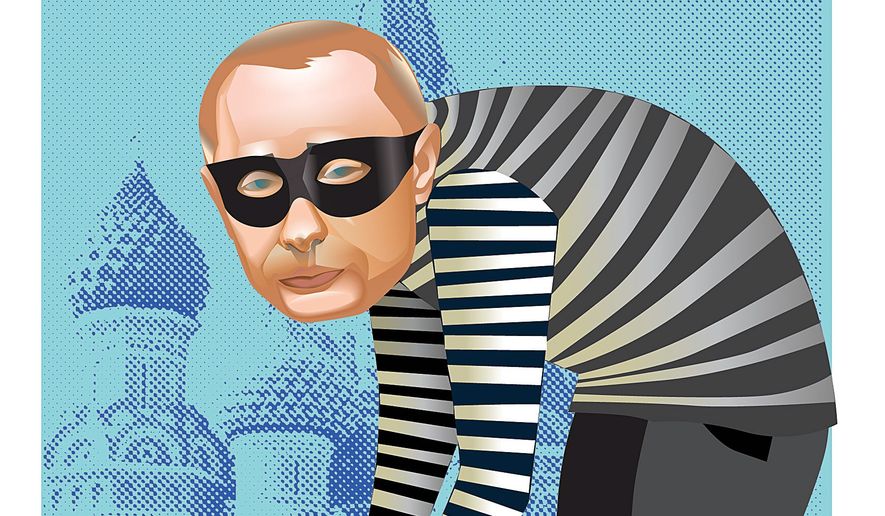OPINION:
On the eve of a national election in tiny Moldova last November, $450 million — equal to 10 percent of the Eastern European country’s entire annual gross domestic product — went missing. So far, no one knows where it went.
Much was at stake in the election. Last June, Moldova’s pro-Europe government signed an association agreement with the European Union. Pro-Russia opponents favored partnership with Moscow’s Eurasian Economic Union instead. The incumbents barely won. Moscow signaled its displeasure with the EU agreement by placing an embargo on the import of Moldovan fruits, vegetables and wine.
Earlier this month, approximately 10,000 Moldovans marched in the streets of the capital, Chisinau, shouting, “Down with the thieves!” and “We want the billions back!”
Kroll, the international risk consultancy, had been engaged to do an initial private investigation. The parliament’s speaker posted this from their report: “There appears to have a deliberate plan to gain control of each of the banks and subsequently manipulate transactions to gain access to credit, whilst giving the appearance to the contrary.” Yet, the National Anti-corruption Center of Moldova claimed the report was based on rumors that leaked to local media.
Could Moldova central bank officials have been involved? The money was taken from three banks: Banca de Economii, Banca Social and Unibank, causing them to be bailed out and taken over by the central bank.
Could wire transfers from these banks have been going on for a long time and covered up by conspirators?
One much-heard rumor is that at least some of the money was transferred to Russian banks. That and other questions remain unanswered. In February, Russian hackers stole money from banks in several other countries. Were these a dress rehearsal for a large-scale assault on Moldova’s banks?
The head of the country’s central bank says foreign investigators will be appointed to get to the bottom of it. He says $450 million could not have been withdrawn in a period of days, but years, perhaps beginning in 2007. Corruption has long been a fact of life in Moldova, but something on this scale is unprecedented.
Vadim Khramov, an analyst with Bank of America Merrill Lynch, verified in an interview with EU Reporter that it would take months or even years to convert Moldovan currency into hundreds of millions of U.S. dollars.
Meanwhile, the EU is pressing Moldova to reform its justice and banking systems.
Moldovan law limits transactions to $150,000 at a time. If there were several such transactions, they would attract the central bank’s attention. Mr. Khramov also said that the magnitude of the total transactions would cause the national currency to slump and it has, by 20 percent.
Critics of the central bank say the government’s oversight failure dates back 10 to 15 years. (A recent parliamentary commission looking into its practices resulted in the suspension of its vice governor and the chairman of the Securities and Stock Market State Commission.)
Another theory is that this may have been part of Vladimir Putin’s plan to solidify the Russian sphere of influence throughout Eurasia. Moldova, like its next-door neighbor Ukraine, has an area populated largely by Russian speakers who favor close ties to Moscow. Transnistria and Gagauz are “autonomous territorial units” in Moldova. Gagauz just had an election for the head of its government. The winner, Irina Vlah, was heavily backed by Russia.
While the bank theft may be a conspiracy of insiders to enrich themselves and allies, the instability that flowed from it certainly strengthens Moscow’s hand in its effort to get ever more friendly officials elected in Moldova.
Municipal elections in the country’s major cities will take place during the summer, and Russia is apparently gearing up to get its candidates elected. If they are, look for a drive to then “federalize” Moldova as Moscow has been trying to do in Ukraine. “Federalization” would give the Kremlin an institutionalized hand in the affairs of Russophone areas.
• Peter Hannaford was closely associated with the late President Reagan. He is a board member of the Committee on the Present Danger.




Please read our comment policy before commenting.